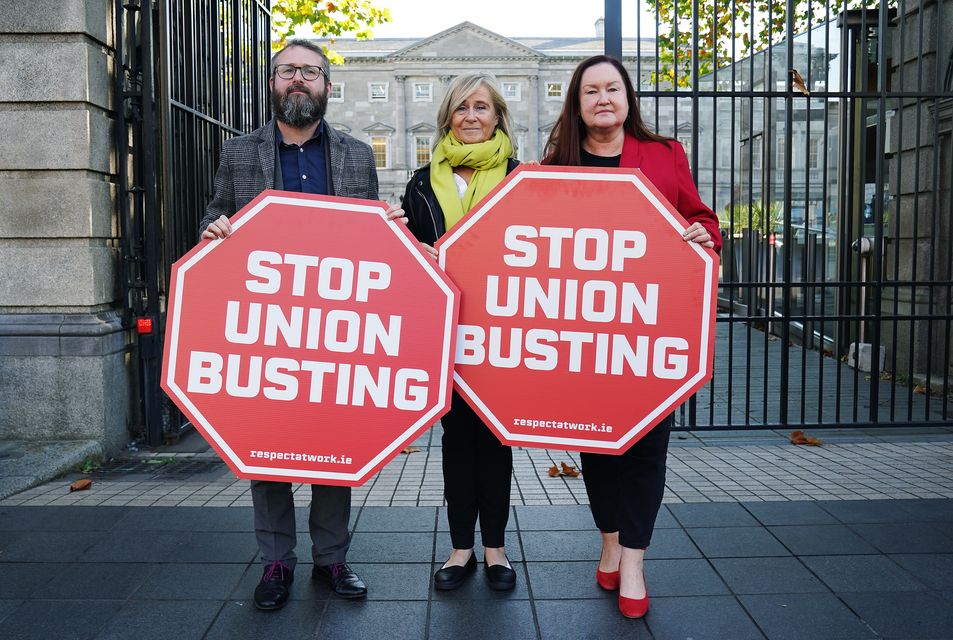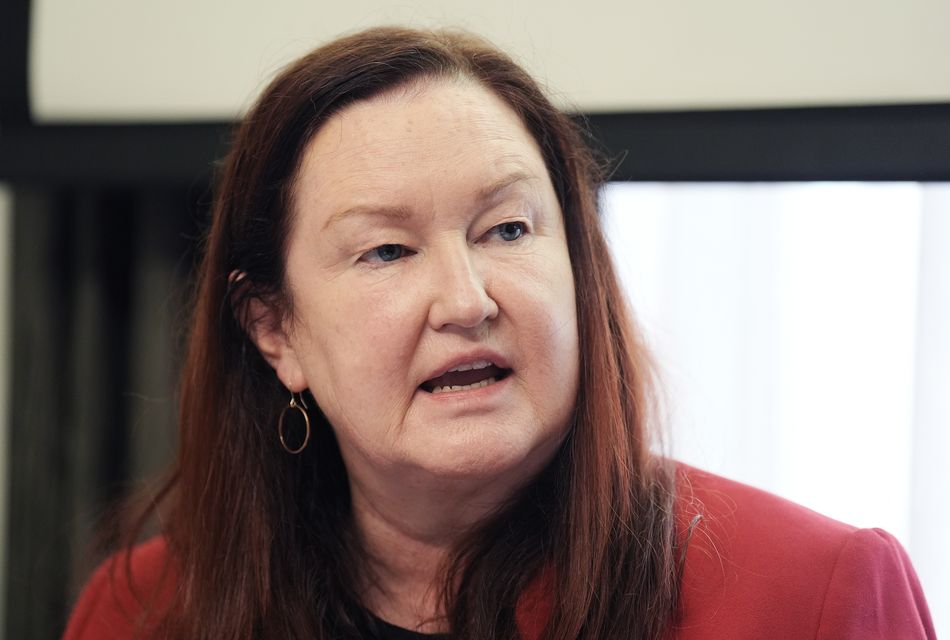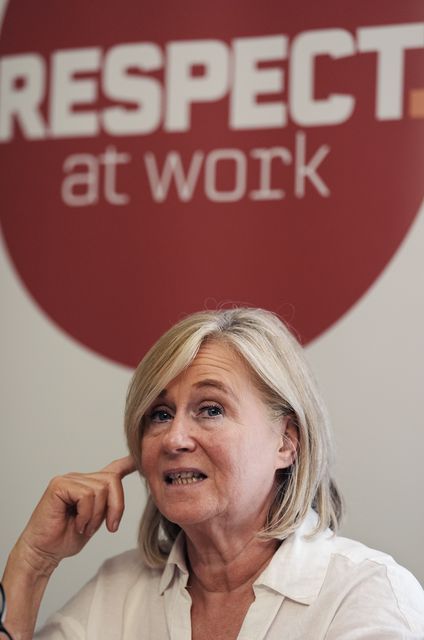Union-busting in Ireland is “thriving” despite denials that it takes place, according to a campaign group that launched a study highlighting its impact on workers’ wellbeing.
The research found that more than half of workplace representatives had observed at least two forms of union-busting and 40% said employers had discouraged workers from joining a union.
The Respect at Work campaign carried out a survey of 159 workplace representatives across four unions, with the help of Queen’s University in Belfast.
Lead author of the report Dr Gareth Murphy said that while one form of union-busting could be seen as a result of a “rogue” manager, high instances of more than two forms was telling.
The report, which interviewed people who had moved to set up unions in their workplace, found that almost half of shop stewards said their efforts negatively impacted on their physical and mental health.
Dr Murphy said that “sophisticated” anti-union strategies from employers will see a scale of actions ranging from dismissal and victimisation to opinion surveys and internal worker forums.
“The internal body is not a trade union. It does not collectively bargain and it does not represent workers independently. It isn’t of and by workers,” he said.
Sharon Gill (centre), a former 999 call centre worker, with SIPTU Deputy General Secretary Ethel Buckley (right) and Dr. Gareth Murphy (left), lead author of the report, outside the gates of Leinster House, Dublin, following the launch of a report on union busting in Ireland. Picture date: Wednesday October 23, 2024.
“So under any international law that defines what trade unions are and defines what collective bargaining (is), it is neither of those things.
“There’s a spectrum of behaviours, and you’ll often find employers will ebb and flow and pick and choose the appropriate tactics based on the circumstances that they are in.
“The one thing in common is it’s avoiding recognising the collective bargaining with a trade union.”
Siptu deputy general secretary Ethel Buckley said the idea that union-busting was just “an American phenomenon” was “an absolute myth” and said there were “vicious” instances of anti-union actions taken by employers in Ireland.
“We have an epidemic of low-paid work in this country. What’s one of the main reasons why we have it? It’s this very high level of non-unionisation in the Irish labour market.
“We’re explaining in this report that the main contributing factor to that is not that workers don’t want to unionise, it’s that they are afraid to unionise.”
SIPTU Deputy General Secretary Ethel Buckley speaking at the launch of a report on union busting in Ireland at Buswells Hotel, Dublin. Picture date: Wednesday October 23, 2024.
She said that Ireland has some of the weakest workers’ rights in western Europe and lags behind on collective bargaining, and is one of the only countries in Europe that has no right to access a trade union.
“This is the issue of this general election, the Irish trade union movement. You can ignore it if you want, but you’re going to be hearing it on doors from us soon.”
Sharon Gill, a former 999 call centre worker, said that the company she worked for told workers that while they were entitled to be part of a union, the company was under no obligation to recognise it.
At an event to launch the report, Ms Gill described how her former employer’s response to her attempts to unionise led her to feel “demoralised” and with “crippling anxiety”.
“I knew I was being watched. I wasn’t free to speak to my colleagues. I felt (as) if I was, I was being watched as well, even if I was just having a harmless conversation about the weather.”
Sharon Gill, a former 999 call centre worker, speaking at the launch of a report on union busting in Ireland at Buswells Hotel, Dublin. Picture date: Wednesday October 23, 2024.
John, a shop steward who spoke at the event on condition of anonymity, said that he had worked at a multinational clothing retailer since he was 16 on an average of 30 hours a week.
He and a group of workers decided to unionise to call for a pay scale, more than three days’ notice on what their rosters would be and improvement of their eight- or 12-hour-a-week contracts.
“From the get-go, they started union-busting straight away, would not recognise the union in any way, shape or form. As the shop steward they came out for me, I suppose, just make an example of me.
“My hours were cut straight back to the contract, so that’s eight hours a week split over two four-hour shifts. I got a second job in bar work, so it was going to be the weekends and they found out when it was.
“All of a sudden, I would be scheduled in either very late for my four-hour shift on the weekend nights or very early the next morning, just to try and conflict with that other job.”
He added: “One that sticks out in my mind the most, because it still annoys me, was when they tried to discipline me for being two minutes late.
“That kind of thing leaves you on edge all the time as well, that had a really bad effect on my mental health because I dreaded coming into work every day because (I thought) what are they going to do to me today?”
The campaign is calling for new “robust” legislation to increase the collective bargaining coverage in Ireland, which is lagging behind on 34% compared with the EU average of 60%.
Sinn Fein Senator Paul Givan raised questions on whether contractors who are awarded state contracts should be required to engage with efforts to recognise unions and not engage in union-busting.
Independent Senator Alice Mary Higgins made the point that there had been tax relief on union membership in Ireland before, which sent the signal that the State supports unions as a public good in society.


